Basics of the J-1 Visa
The J-1 visa is truly versatile. It is used by college professors coming to teach at US universities for a few semesters, by foreign medical doctors doing their residency in the US, and by scientific researchers and Ph.D. students. It is also used by businesspeople, professionals and teachers to receive training in the US as part of cultural exchange, and by European college students to work in the US as nannies.
While most of our J-1 visa clients are physicians and researchers, we represent diverse businesses who hire, and many individuals who use, the J-1 visa to come to the US. One of our business clients on a J-1 was a French wine sommelier who was sponsored by a fine dining restaurant to work and learn about Napa Valley wines, while several are scientists doing their Ph.Ds, or medical residents.
J-1 Visa Eligibility Criteria
The Sponsor
A J-1 visa may only be sponsored by a company that has been pre-screened by the USCIS. The sponsoring company must have a training plan in place and a designated supervisor responsible for training the J-1 visa holders during their work in the US. The process to become a J-1 sponsor is lengthy, with minutely detailed documentation and on-site visits from the USCIS before a company is approved as a J-1sponsor.
Once the company’s ability to sponsor J-1visas is approved, the company can then issue a Form DS-2019 (previously IAP 66) to the person they wish to sponsor. Sometimes, instead of going through the grueling process themselves, the US employer contracts to get J-1 trainees from a company that is already pre-qualified to sponsor J-1visas.
The worker
The applicant takes the Form DS-2019 issued by the sponsor to the US consulate to request a J-1 visa. Applicants already in the US can change their status to a J-1 without having to leave the US.
Home Residency Requirement
Some J-1 visas require that the applicant return to their home country for 2 years after they finish their J-1 period of stay in the US. This is called the “home residency” requirement.
There is a very valid reason behind the home residency requirement. A J-1 visa is issued to foster cultural and knowledge exchange between countries. The assumption is that applicants are allowed to train in the US to learn skills that are not taught in their home countries. Once applicants acquire the skills, they are expected to return to their home country to share their knowledge.
The home residency requirement usually applies to foreign physicians (called “FMGs”). It does not apply to business trainees.
J-1 Visa Filing Process & Duration
J-1 visas are filed directly by the applicant at the US consulate closest to them. They must take the sponsor’s issued DS-2019 with them.
If a student on an F-1 visa wishes to change to a J-1 visa, they file for a change of status while in the US.
- Duration of a J-1 visa:
- A recent college graduate doing an internship can stay for 12 months.
- Business trainees can stay up to 18 months.
- Professors and researchers can usually stay for up to 5 years.
- Family members can enter the US on J-2 visas. The spouse and children may apply for work authorization.
- Obtaining a green card. A J-1 visa is a single intent visa. The applicant confirms that they would return to their home overseas when they applied for the J-1 visa.
- If the J-1 visa is subject to the “home residency requirement”, the applicant must file to waive the requirement before they can file for a green card. To learn more about how to waive the home residency requirement so you can file for a green card and live permanently in the US please click here-Waiver of Home Residency Requirement
- For other J-1 visa holders, they must either change to another visa before filing for a green-card, or prove that they did not lie on their J-1 application when they confirmed that they would return to their overseas home after the J-1 stay in the US.
To read additional details about the government’s filing process and fees for the J-1 visa, please visit the USCIS website here.
J-1 Visa Filing Problems
Challenges for the Sponsor
Getting a company designated as a J-1 sponsor is a lengthy process involving preparing a detailed training plan and preparing the company for an on-site inspection by the USCIS. When the business is looking to get a foreign business trainee, the USCIS is very careful to differentiate between whether the worker is going to “work” or be “trained”.
Training is permissible on a J-1 visa but working is not. There is a fine distinction between working in the employer’s office to learn about new ways of doing business (training), and just working to make money. USCIS considers the employer’s role in the training, how many hours they devote to in-class and on-the-job training, and mentorship before they approve a company as a J-1 sponsor.
Challenges for the Worker
Similarly, the J-1 applicant has to meet a high threshold before qualifying for a J-1 visa. If the applicant is a medical doctor, getting the initial J-1 is comparatively easy, but being able to work or to live permanently in the US after finishing medical residency requires that the applicant file for a waiver of the 2-year home residency requirement.
Similarly, business trainees and au pair interns often wish to extend their stay in the US.
Since the J-1 visa is a single intent visa, applicants must prove that they will return to their home country. This creates issues when the J-1 visa holder wants to live permanently in the US.
The Immigration Desk Solution
We help employers/sponsors get authorized to hire J-1 visa holders. Many employers look forward to having foreign workers who will bring their home-country’s methods of performing the job and in exchange are willing to share their own professional knowledge. In these situations, we help the employer develop a training plan and guide them as to what their ongoing commitments will be.
Oftentimes our clients are research scientists or business-people whose J-1 visas are about to expire. Since it is extremely difficult to file for a green card (permanent stay) while on J-1, we help to plan and to file for alternate work visas for temporary stays, such as the O-1, H-1 and sometimes the L-1 visas. We also help our clients plan pathways to obtain green cards for permanent stay in the US.
Foreign physicians most times seek our help in removing the 2-year home residency requirement. We help with filing for waivers and also file green card petitions for them.
We like making cases routine, but thrive on the approvals we win on tough cases.
In the coming times, we will be adding more information on our website. We look forward to hearing your comments and including information based on what you want to read most! Please leave your comments here. We look forward to helping make immigration easy for you!
Read about our featured award-winning, founding attorney, Anu Gupta here.
To explore other visas, or for a listing of our services, please click on buttons below.
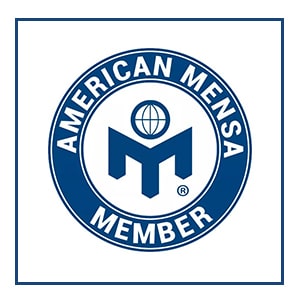
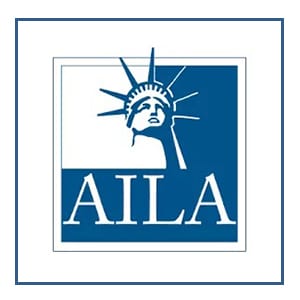

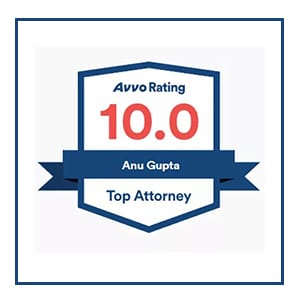
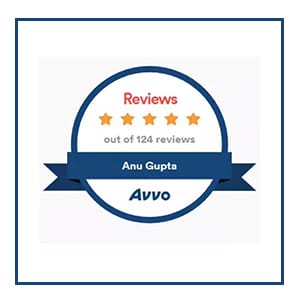

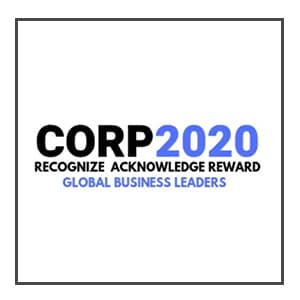

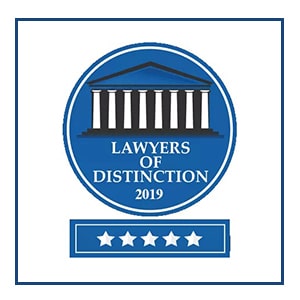


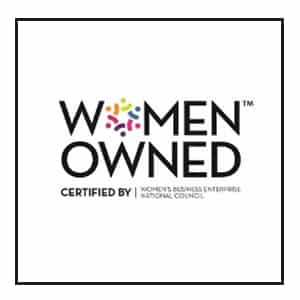

Fantastic person to work with, one of the best lawyers out there
Got my green card approved after I hired Anu to respond to the Request for Evidence.
Anu is one of the best lawyers out there. She is reliable, knowledgeable, available, and truly cares about her clients! Before Anu, I was in constant stress looking for a lawyer to deal with my difficult and time sensitive green card case – and many either turned it down because it is out of their scope or they wanted to take it but didn’t know how to handle it.
...Anu eased my stress because she has dealt with cases like mine before and she is very knowledgeable in her field. I would ask streams of questions and she’d answer all of them- she is such a fantastic person to work with.
I cannot thank Anu enough for taking my case, working on it, making the deadline and getting it approved. If anyone needs a lawyer who actually cares about their clients- Anu is the best person to rely on. She is someone I would go to for future cases and I highly recommend Anu to anyone who needs immigration help.
Extremely Talented Immigration Attorney
Anu is an extremely talented Immigration Attorney whom I recently hired to work on my immigration case. She is a hard-working dedicated professional who is a person of high integrity.
She has always offered the best possible advice to me. She and her team were able to file my petition in a very timely fashion.
...In situations that demand attention, you will find Anu approachable and very comfortable to talk to. On many occasions, I have been able to reach Anu directly and get my questions answered in no time. I would highly recommend Anu to anybody who is looking for an attorney who is trustworthy and reliable. You will not be disappointed! I am glad to have hired her.
Brilliant work-turned around my sinking immigration case
Immigration Desk helped me get back in status after a problem with my J-1 visa. Attorney Anu Gupta is a very knowledgeable, honest, helpful, approachable and supportive immigration lawyer. She can confidently manage complex immigration issues like what I had.
...I came to the United States on a J1 visa (exchange visitor) but my medical license was under review and because of this I had to stop working. I needed to be in the US to clear up the issue with my license, but this apparently requires some time to process.
I had my H-1B work visa changed to a tourist visa (B-2 visa) but I needed more time to resolve my licensing issues. I then applied for a student visa- this idea is per suggestion of a relative.
My previous immigration lawyer was not helpful at all in the change of status process. She did not even discuss options for me to lengthen my stay in the US. All she cared about was to charge me for every single minute that I spend talking to her in person or on the phone but nothing relevant was discussed. Then I spoke with another immigration lawyer who basically said that there is no way that the USCIS was going to approve my change of status to student visa.
I was losing hope and was on the verge of giving up. I was thinking of just going back to my home country to avoid the stress of dealing with the immigration issues. But then I found Attorney Anu Gupta. It may sound cliché but after talking to her I literally found a light at the end of the tunnel.
She was very optimistic about my case. She answered all of my questions and she was very open to my suggestions. We explored all other options and chose the best route. She was the one who even took care of the RFE (request for evidence) for my tourist visa.
Her attention to detail is highly commendable. She made sure that no loose ends were hanging on my case. The moment she reviewed my case, she knew exactly what to do. She had a different game plan for me. I was initially dubious with her recommendations and she acknowledged my feelings but she replied “You have to trust me on this. This is what we should do. I know exactly what the USCIS wants to approve your case”.
So I adhered with her strategy and recommendation and low and behold, after a few months of waiting, my student visa got approved.
I am currently working on getting my license back and I am looking forward to working with Attorney Gupta again to process my work visa.